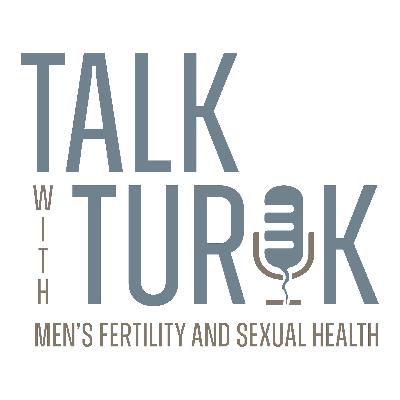Episode 9 - Sperm Secrets Unlocked - A Deep Dive with Kristin Brogaard
Description
Infertility too often defaults to a “woman’s issue,” yet up to 50% of cases stem from male factors. A basic semen analysis should be the very first step for any couple trying to conceive, but going beyond with advanced sperm-quality technology like Sperm QT and epigenetic analysis transforms outcomes. These deeper dives—performed under the care of a reproductive urologist—expedite diagnosis, support more affordable treatment paths, and spare couples from unnecessary procedures or invasive female testing and lead to increased success rates and potentially healthier children, at a reduced cost.
Why This Episode Matters
In Episode 9 of Talk With Turek, Dr. Paul Turek and co-host Rob Clyde welcome Kristin Brogaard, CSO of Path Fertility, for an unfiltered exploration of:
Why Epigenetics Matter in Sperm Analysis
Epigenetic “tags” on sperm DNA don’t alter your genetic code—but they determine which genes are switched on or off. Understanding these marks is crucial because:
• Guiding Embryo Development: Proper epigenetic programming in sperm steers early embryonic gene expression—errors here can contribute to implantation failures or developmental issues.
• Predicting Fertility Outcomes: Abnormal sperm epigenetic patterns are linked to lower fertilization rates and higher miscarriage risks, making them invaluable biomarkers beyond simple counts or motility measures.
• Safeguarding Future Generations: Environmental exposures, age, and lifestyle can reshape sperm epigenetics—and those changes may influence children’s long-term health.
Path Forward: Actions to Optimize Sperm Epigenetics
Armed with epigenetic insights, couples and clinicians can take targeted steps to enhance reproductive success:
• Routine Epigenetic Screening: Incorporate DNA methylation profiling along with standard semen analyses to uncover hidden obstacles to conception.
• Collaborative Care: Partner with a reproductive urologist to interpret advanced assay results, integrate them into your fertility plan, and monitor improvements over time.
• Preventive Counseling: Educate on the impact of diet, toxins, stress, and exercise—empowering lifestyle changes that benefit both sperm health and future children’s well-being.
• Personalized Interventions: Tailor nutrition, supplement, or medical therapies based on each patient’s specific epigenetic profile.
Thank you for being part of our community. Together, we’re redefining reproductive care—one scientific breakthrough and one hopeful story at a time.
Subscribe to never miss an episode, LIKE if you find value, and SHARE to help break the silence around male infertility!





